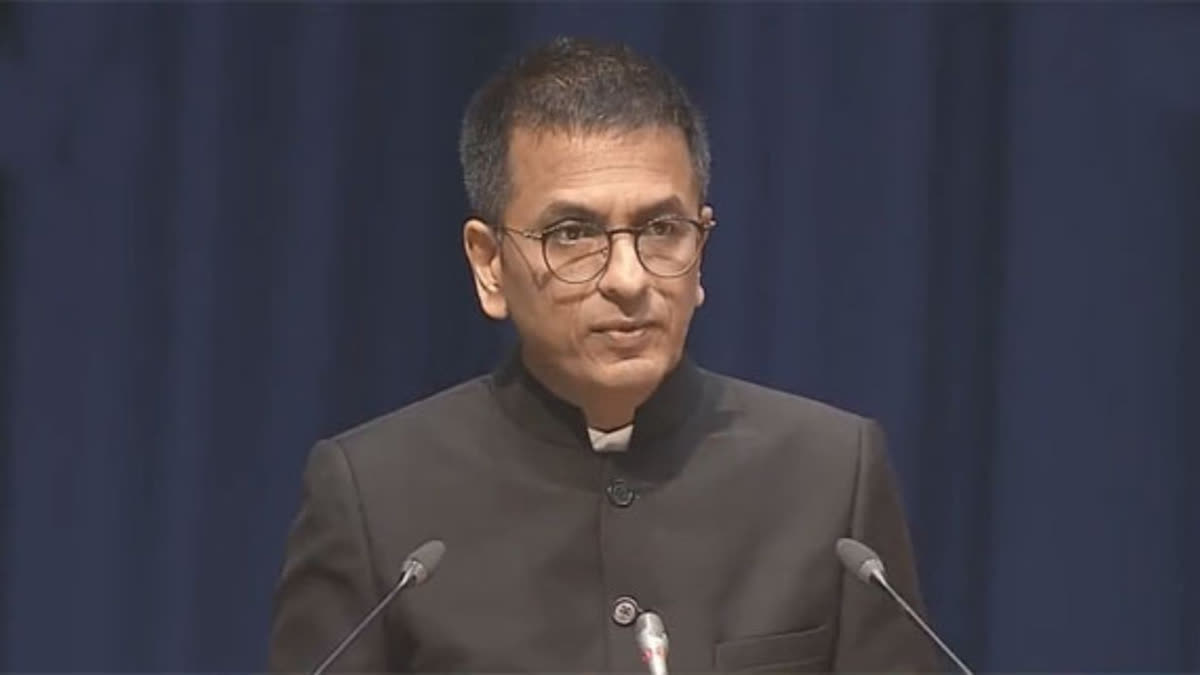New Delhi/Bengaluru: Chief Justice of India D Y Chandrachud Saturday said affirmative action emerges as a transformative force challenging established caste dynamics in India and is a beacon of hope for removing caste-based inequalities and paving the way for a more equitable future.
CJI Chandrachud delivered the keynote address on the topic 'Identity, the Individual and the State: New Paths to Liberty' at the 36th LawAsia conference in Bengaluru. The CJI, in his speech, said affirmative action emerges as a transformative force challenging established caste dynamics and reservation for socially underprivileged groups in education and jobs is among the affirmative actions prescribed in the Constitution of India.
The CJI said people who face marginalisation because of their caste, race, religion, gender or sexual orientation face oppression in a traditional, liberal paradigm.
He further added that this "traditional liberal paradigm empowers the socially dominant in two ways. First, it removes state fetters from them to act as they please. Second, it emboldens social groups to exercise their existing dominance to oppress marginalised populations".
CJI said, "The natural order in which liberty is believed to operate is actually an economically affluent, upper caste, cis-gender, heterosexual, male perspective – an economically dominant perspective today".
He said that recognition of identity by the state has a role to play in the resources people get, their ability to express grievances and demand their rights. He said in India, affirmative action has been prescribed and even mandated by the Constitution in the context of the Scheduled Castes, the Scheduled Tribes and the Backward Classes.
He said caste, far from being a vestige of the past, continues to exert significant influence on contemporary socio-economic and political landscapes. He further added that its resilience is evident in the social stratification, economic disparities and access to opportunities experienced by different caste groups.
“The intricate caste system is rooted not just in historical inequalities but complex realities of today….." he said.
Citing findings of reports such as the Sachar Committee report and the Justice Ranganath Misra Commission report, he said they have put the focus on social segregation, untouchability, limited access to education and under-representation of the marginalised. He stressed that this “underscores the pressing need for affirmative action to address deeply rooted discrimination”.
CJI Chandrachud said that when the state does not intervene to correct social inequalities, “it automatically allows communities with social and economic capital to exercise dominance over communities who have been historically marginalised”.
“For the Adivasi or tribal communities, the right to liberty finds expression in territoriality. Homelands that confer a particular identity and enable distinct livelihood practices. Their struggles, particularly around issues of forest rights, governance, autonomy and self-determination, exemplify the embodiment of sovereignty and autonomy encapsulated in the tribal or adivasi slogan ‘our land, our rule’,” said CJI.
Justice Chandrachud said there is a complex interplay between artificial intelligence (AI) and personhood where we find ourselves navigating uncharted territories that demand both philosophical reflection and practical considerations.
The CJI, while citing the example of a human-robot Sophia, which was granted citizenship in Saudi Arabia, said in contemplating the intersection of AI and personhood, we are confronted with fundamental questions about the ethical treatment of these technologies.
“We must reflect on whether all humans who live, breathe and walk are entitled to personhood and citizenship based on their identity,” he concluded.
Read more



